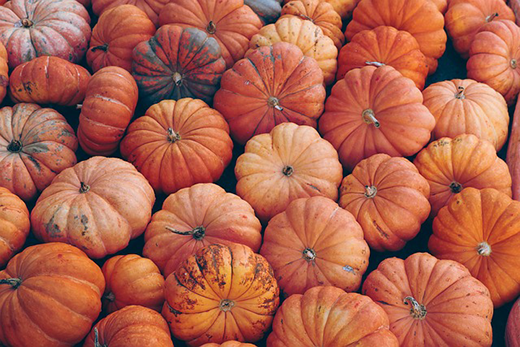
Home canning is not recommended for any mashed pumpkin or winter squash, said K-State food scientist Karen Blakeslee.
How to preserve pumpkins this fall
K-State's Blakeslee says sugar or pie pumpkins are best for cooking
Sept. 27, 2023
By Maddy Rohr, K-State Research and Extension news service
MANHATTAN, Kan. – It is nearly October, which means pumpkins are everywhere, including in popular food and drink items.
When the popular fall treat is used for baking and cooking, Kansas State University food scientist Karen Blakeslee says sugar or pie pumpkins are the No. 1 choice.
“They are smaller than pumpkins used for carving festive jack-o-lanterns,” Blakeslee said. “They have dense flesh and high sugar content. The flesh is less stringy and the color is usually darker.”
When cooking, 1 3/4 cups of mashed fresh pie or sugar pumpkin can replace a 15-ounce can of pumpkin.
“Home canning is not recommended for any mashed pumpkin or winter squash. The only directions for canning these are for cubed pieces. Mashed products can be safely frozen,” Blakeslee said.
Mashed pumpkin or winter squash has a thick density in mashed form which prevents adequate heat transfer to the center of the jar. Blakeslee warns of insufficient research to establish a single, safe processing time for mashed pumpkin or winter squash products.
“This can lead to under processing or uneven processing and harmful bacteria can survive after canning,” Blakeslee said. She suggests freezing mashed pumpkin or winter squash as the safest method of preservation.
Some grocery stores sell sugar or pie pumpkins, but Blakeslee recommends looking for U-pick farms that grow pumpkins.
"Before cutting, always rinse with water and scrub the outside of the pumpkin to remove any dirt and debris. Check for damage to the rind such as soft spots or spoilage and remove those spots,” she said.
Blakeslee, who also coordinator of K-State’s Rapid Response Center for Food Science, publishes a monthly newsletter called You Asked It! that provides numerous tips on food safety. More information is also available from local extension offices in Kansas.

